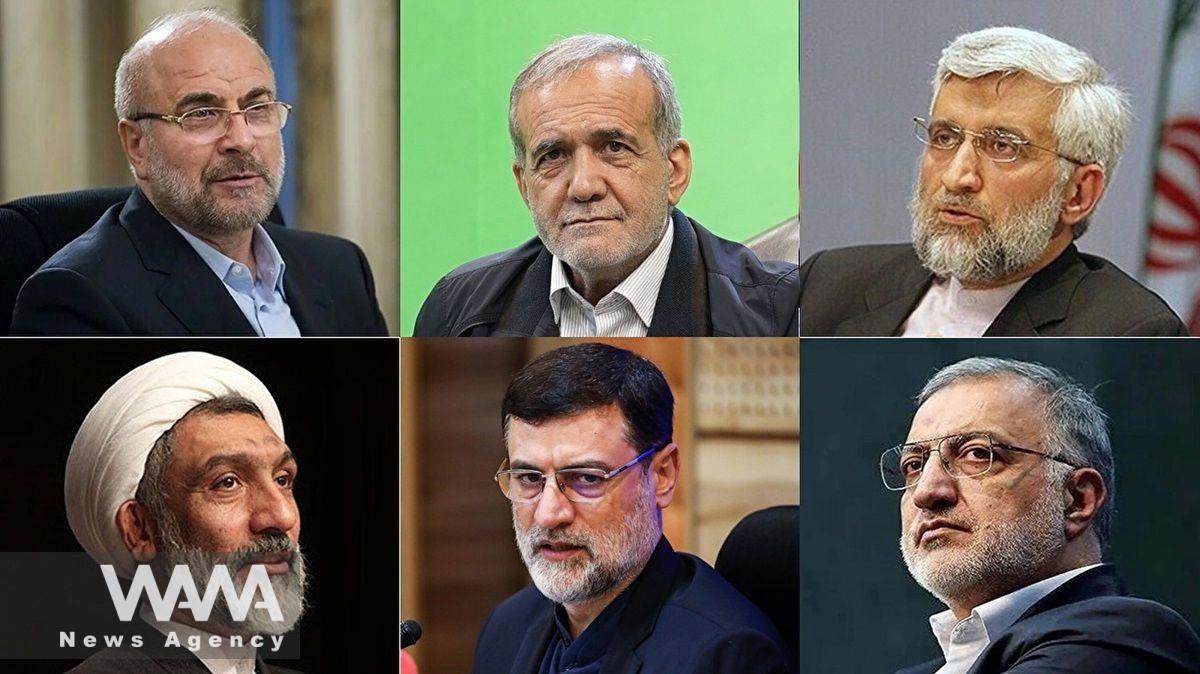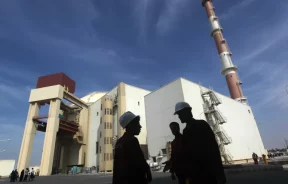Debates Fail to Sway Undecided Voters So Far
WANA (June 21) – Last night, the second debate between the Iranian presidential election candidates was held. The focus was on economic issues and the theme of service-oriented justice. The candidates were questioned on topics such as livelihoods, health, and education, all of which revolved around the concept of justice. This concept, a cornerstone of human history, is particularly relevant today due to the pressing issues of poverty, corruption, discrimination, and nepotism.
The debate’s format underwent a change. The candidates’ seating arrangements were replaced with individual desks and chairs, enhancing their control over the discussion and intensifying the debates. The second debate was more heated than the first, although the tension was not immediate.
Amirhossein Ghazizadeh, Pourmohammadi, and Zakani were the most vocal, raising a number of controversial questions and topics, many of which were directed at the reformist government and Mr. Pezeshkian. It’s important to note that a collective attack on one candidate can inadvertently cast them as a victim, a strategy the candidates should consider. Pourmohammadi also took aim at Mr. Ghalibaf and Mr. Jalili on a few occasions.
Ghalibaf and Jalili tried to avoid these controversies as much as possible, and except for one or two instances where Ghalibaf responded to some points, there was no significant reaction from these two candidates. At the beginning of his speech, Jalili subtly reacted to Zarif’s comments by cleverly congratulating the Iranian volleyball team for their victory against the USA.

WANA – Presidential candidates
Zakani voiced the most criticism during the debate and even substantiated his remarks with printed photos, documenting his arguments visually. It was announced after his speech that if anyone was insulted or any rights were violated during the program, those individuals would be given a chance to defend themselves.
Considering the changes in decor and arrangement in this debate compared to the first one, and Mr. Jalili being seated last, he was expected to use this golden opportunity of being the last speaker to present more challenging and straightforward discussions. However, he continued delivering scientific talks suitable for the intellectual elite, making it difficult to appeal to the public with this speaking style.
Jalili did not respond quickly or firmly to Pourmohammadi’s remarks regarding FATF and Jalili’s stance. Mr. Pezeshkian again had yet to make any new points and mostly talked about following the leader of Iran. Although his content was weak, he had generally appealing body language and eloquence. In response to criticisms from others like Zakani and Ghazizadeh, he was repetitive and reiterated some of his positions, trying to emphasize reconciliation and avoid conflict.
Pourmohammadi appeared more severe and aggressive in this debate but did not answer the questions; instead, he skipped the question to criticize others and stated his pre-planned points. Ghalibaf continued to respond calmly and with a smile, and whenever necessary, he would refer to other candidates to validate his points. In the midst of all the discussions, Ghalibaf resembled a player juggling the ball when everyone else was looking for it.
Overall, this debate offered nothing new and was a repetition of previous discussions. Everything we heard from the candidates had been heard many times before, and this debate failed to change the opinion of undecided individuals.
By WANA writer: R.hejazi












